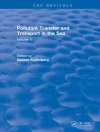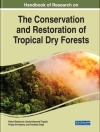The monograph entitled “Crop responses to Global warming” describes the normal historical shifts in the earth’s atmospheric temperature and weighs the evidence concerning anthropogenic induced changes in the level of temperature. The unprecedented increase in the earth’s temperature after pre industrial period has been possibly related to the anthropogenic activities. This monograph will give an overview of the global as well as Indian crops productivity in relation to the rise in the earth’s surface temperature. A chapter in this monograph is on the technologies to study the response of crop plants to the elevated temperature.
The impact assessment analysis of rising temperature on crops such as wheat, rice, maize, soybean, cotton and brassica are described, reviewed and discussed in separate chapters as case studies. The responses of physiological processes and biochemical reactions to the elevated temperature in crop plants are described crop wise. The monograph also includes the impact of elevating temperature on crop weed interaction, pest and diseases and soil dynamics for each crop species independently. The mitigation technologies to counter the adverse effect of high temperature stress are described for each crop according to their cultivation and climatic conditions. The future research strategies for each crop to meet the threat of elevating temperature on crop productivity and food security is described and discussed.
The description of temperature enrichment technologies will help researchers and scientists to study the responses of biological materials to rising temperature. The monograph will be the main text for teaching climate change, global warming and environmental botany as no such book is currently available relating to the rising atmospheric temperature on crop plants. Therefore, the monograph will be highly useful for students of global climate change, environmental botany and agricultural sciences, scientists, researchers, farmers and policy makers
Jadual kandungan
1. Introduction.- 2. Problems and Prospects of Crops with Changing Temperature.- 3. Temperature Enrichment Technologies for Crop Response Studies.- 4. Case Histories: Crops.- 5. Mitigation Technologies To Control High Temperature Stress In Crop Plants.
Mengenai Pengarang
Dr. D.C. Upreti is currently working as Emeritus Scientist at Division of Plant Physiology, Indian Agricultural Research Institute, New Delhi.
Papers published in International Journals:
1. Pooja Gokhale Sinha, P. Pardha Saradhi, Dinesh Chandra Uprety, Ashok Kumar Bhatnagara, (2011): Effect of elevated CO2 concentration on photosynthesis and flowering in three wheat species belonging to different ploidies. Agriculture, Ecosystems and Environment, 142 (3-4) 432-436.
2. Kumeleh, A.S., Sharmila, P., Uprety , D.C., and Saradhi, P.P. (2009): Effects of elevated CO2 on soil physicochemical characteristics under Free Air CO2 Enrichment (FACE) technology. Climate Change : Global Risks, Challenges and Decisions, IOP Conf. Series: Earth and Environmental Science (IOP Publishing Ltd.) 6: P 29.26.
3. Sinha, P. G., Kapoor, R. , Uprety, D.C. and Bhatnagar , A. K. (2009): Impact of elevated CO2concentration on ultrastructure of pericarp and composition of grain in three Triticum species of different ploidy levels. Environmental and Experimental Botany , 66:451-456
Papers published in National Journals:
1. Chakraborty, K, Uprety D.C. and Bhaduri, D. (2015). Growth, physioloigy and biochemical responses of two different Brassica species to elevated CO2.Proc.Natl.Acad. of Sciences, B. Biol.Sci. DOI 10.1007/s40011-015-0615-9.
2. Chakraborty, K, Bhaduri, D, Uprety, D.C. and Patra, A.K.(2013).Differential response of plant and soil processes under climate change. Amini review on recent understanding. Proc.Natl.Acad.of Sciences Sec.B.Biological Sciences 07-2013
3. Chakraborty, K.and Uprety, D.C.(2012). Elevated CO2 alters seed composition and quality of Brassica (Short communication) 17, 1, (n.s.), 84-87
4. Uprety, D.C., Baruah, K.K. & Borah L. (2011): Methane in rice agriculture, J. Sci. Ind Res. 70:401-411.
Book/Monograph:
1. Uprety DC (2014): Greenhouse gases and crops. Publishing India Groupe.1-427, ISBN 978-81-928337-0-5 2. Chakraborty, K.and Dinesh Chandra Uprety (2012).Impact of elevated CO2 on crop plant:A case study with Brassica. Assessment of Physiological and Biochemical changes and alterations in seed quality. LAMBERT Academic Publishing.ISBN 878-3-659-76868-0.
V.R. Reddy is presently the Research Leader and Supervisory Plant Physiologist for the USDA-ARS, Crop Systems and Global Change Laboratory (CSGCL), Beltsville, MD, USA. Over the years, Dr. Reddy served on various professional, and administrative positions, most recently as Acting Associate Director for ANRI during (2011-2012), and as Beltsville Area representative on the RL Advisory Council (2010-2012). Presently serves as the Members of Scientific Advisory Board(SAB) of the Organization for Economic Co-operation and Development (OECD), Paris, France. Dr. Reddy is a Fellow of the American Society of Agronomy, and Crop Science Society of America. He presently serves as a members of several Editorial Boards of the International Scientific Journals.
Dr. Reddy’s research focuses on crop responses to climate change, especially processes like photosynthesis, respiration, transpiration, carbon and nitrogen metabolism and growth analysis of cotton, soybean, corn, and various other crops. He uses this process level data for the development of mechanistic, process level crop simulation models and computer-aided farm decision-support systems for major crops like corn, cotton, soybean, potato, wheat and rice. In addition to his research, Dr. Reddy provides both technical and administrative leadership for the Crop Systems and Global Change Laboratory.
Dr. Jyotsna Devi Mura is presently working as Visiting Scientist, Adaptive Cropping Systems Laboratory, USDA-ARS, MD, USA
Her awards and fellowships:
Bailey Award (2016) for the paper “Variation of Transpiration Efficiency and Its Related Traits in Valencia Mapping Population” from the Production Technology/Weed Science II session at the 2016 APRES Annual Meeting, Clear Water Beach, FL, USA.
• Doreen Margaret Mashler Award (2015) (Crop Physiology team, ICRISAT, India) for outstanding contribution in Development of phenotyping and modelling tools for priority setting and enhancing agriculture productivity and sustainability.
• US agency for international development (USAID) Research Grant (2007-2009) though CGIAR-ICRISAT on “Symbiotic nitrogen fixation: The forgotten trait ingroundnut tolerance to water deficit”; Co-investigator of the grant (45, 000$)
• Council of Scientific and Industrial Research, India; 2005-2007; awarded Senior Research Fellowship.
• Council of Scientific and Industrial Research, India; 2003-2005; Junior Research Fellowship.
• University Grants Commission–Council of Scientific and Industrial Research, India; 2002; awarded Lectureship through national level eligibility test
Published Journal Articles
• Devi, M.J., Shekoofa, A. 2017. Peanut (Case Study). In: Water-Conservation traits to increase crop yields in water-deficit environments Ed: Sinclair, T.R. DOI: 10.1007/978-3-319-56321-3_5
• Sinclair, T.R., Devi, M.J., Shekoofa, A., Choudhary, S., Sadok, W., Vadez, V., Rair, M. & Rufty, T. 2017. Limited-transpiration response to high vapor pressure deficit in crop species. Plant Science, 260: 109-118.
• Devi, M.J., Sinclair, T.R & Taliercio, E. 2016. Silver and zinc inhibitors influence transpiration rate and aquaporin transcript abundnce in intact soybean plants. Environmental and Experimental Botany, 122 : 162 – 178
• Sinclair, T.R., Devi, M.J. & Carter, T.E. 2016. Limited transpiration trait for increased yield water limited soybean: from model to phenotype to genotype to cultivars. In: Crop System Biology Eds: Yin, X. & Struick, P. DOI: 10.1007/978-3-319-20562-5_6
• Devi, M.J., Taliercio, E. & Sinclair, T.R. 2015. Comparisons of the effects of vapor pressure deficit on gene expression among two fast wilting and a slow wilting soybean. Plos One. DOI: 10.1371/journal.pone.0139134
• Devi, M.J., Sinclair, T.R., Jain, M. & Gallo, M. 2015. Leaf aquaporin transcript abundance in peanut genotypes diverging in expression of the limited transpiration trait when subjected to differing vapor pressure deficits and aquaporin inhibitors. DOI: 10.1111/ppl.12378
• Devi, M.J. & Sinclair, T.R. 2011. Diversity in drought traits among commercial southeastern US peanut cultivars. International Journal of Agronomy, 2011: 7 pages (DOI: 10.1155/2011/754658)
• Devi, M.J., Sinclair, T.R. & Vadez, V. 2010. Genotypic variation in peanut for transpiration response to vapor pressure deficit. Crop Science, 50: 191-196
• Devi, M.J., Sinclair, T.R. & Vadez, V. 2010. Genotypic variability among peanut (Arachis hypogea L.) in sensitivity of nitrogen fixation to soil drying. Plant and Soil, 330: 139-148
• Devi, M.J., Sinclair, T.R., Vadez, V. & Krishnamurthy, L. 2009. Peanut genotypic variation in transpiration efficiency and decreased transpiration during progressive soil drying. Field Crop Research, 114: 280-285
• Bhatnagar-Mathur, P., Devi, M.J., Vadez, V. & Sharma, K.K. 2009. Differential antioxidative responses in transgenic peanut bear no relationship to their superior transpiration efficiency under drought stress. Journal of Plant Physiology, 166:1207-1217
• Bhatnagar-Mathur, P., Vadez, V., Devi, M.J., Lavanya, M., Vani, G. & Sharma, K.K. 2009. Genetic engineering of chickpea (Cicer arietinum L.) with the P5CSF129A gene for osmoregulation with implications on drought tolerance. Molecular Breeding, 23: 591-606












